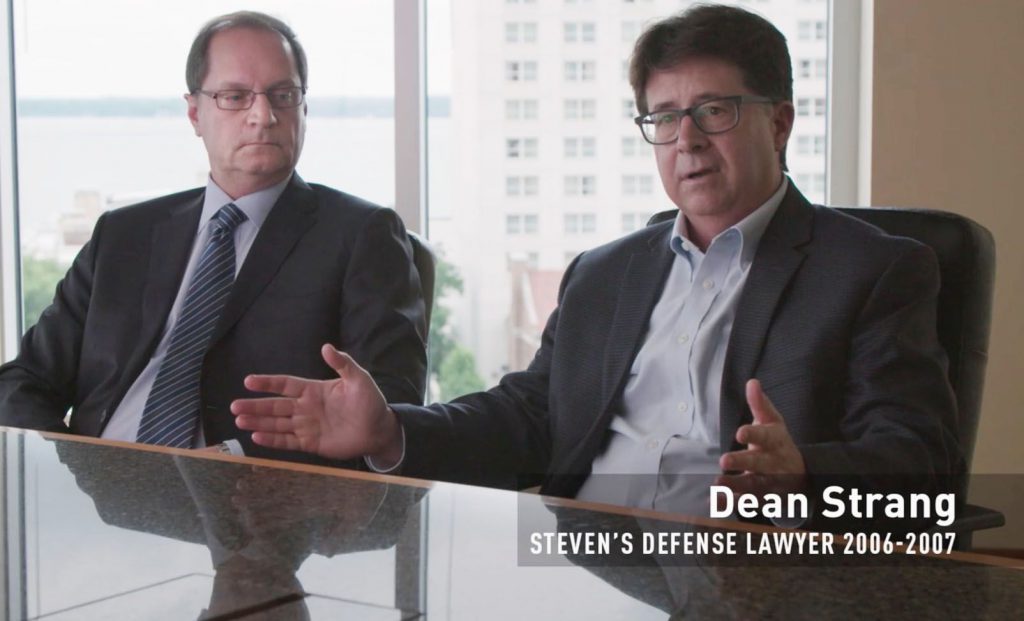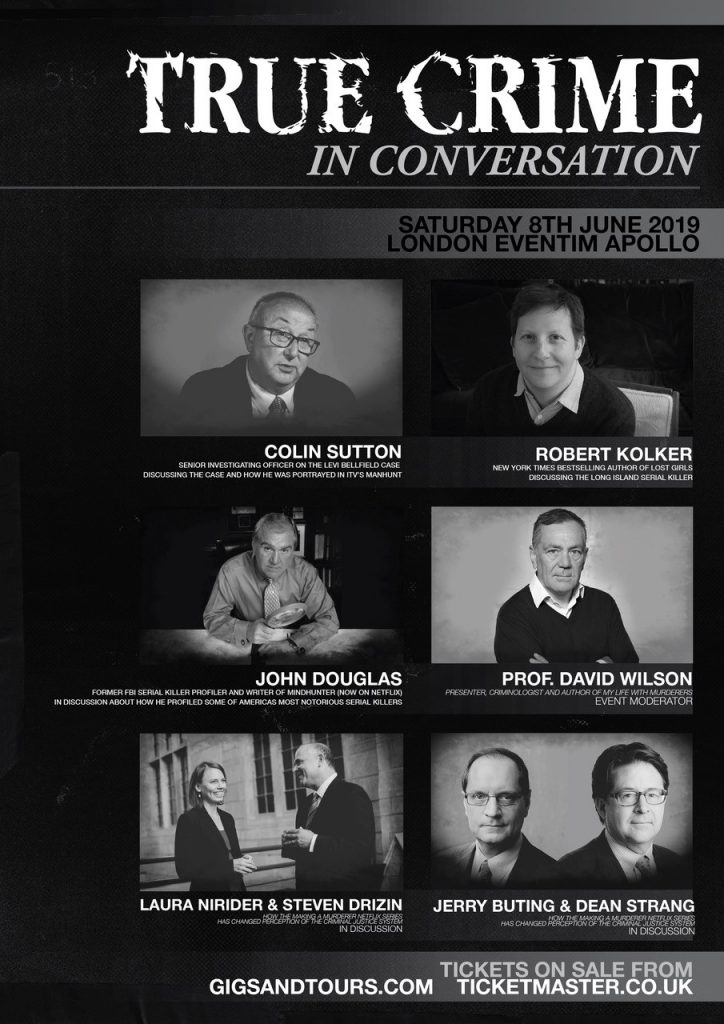
Source: Digital Spy
Next Saturday, the True Crime In Conversation premiere will take place at London’s Eventim Apollo. It will feature a panel of US and UK law enforcement and criminal psychology specialists including John Douglas (one of the first people to interview Ted Bundy), Robert Kolker (writer and New York Times bestselling author of Lost Girls), and Laura Nirider, Steven Drizin, Jerry Buting and Dean Strang (lawyers from the Steven Avery and Brendan Dassey cases documented in the Netflix series Making A Murderer) discussing their experiences working serial crime cases.
We interviewed Dean Strang to get a sneak insight into Making A Murderer, as well as what it’s like to discuss such a huge case to live audiences around the world…
How did the Making a Murderer Documentary series come about?
It was a final project for two film students pursuing their MFA degrees at the time. They were well under way before Jerry and I was asked to represent Mr. Avery. When we arrived, the process of shooting a documentary film had been ongoing for more than three months.
The series has captured audiences all over the world and won numerous awards but in terms of highlighting the US judicial system do you think it’s been a help or a hindrance?
Looking beyond the specific interests of the people directly involved—the Averys, the Dasseys, and the Halbachs—it has been a worthy means of provoking thought and a wide range of public discussion about the administration of criminal justice generally—not just in the United States, but across the world because so many challenges in seeking justice are universal. For the specific people involved, it has been much more complicated than that and difficult. The film itself is unfair to nobody. But some of the reactions to it have been unfair and hard for the Halbachs, the Dasseys, and the Averys.
Do you think Avery’s retrial will be successful and the case will collapse?
I have been a lawyer too long to speculate on what will happen in courts. They are human institutions, top to bottom, with all of the frailties, failings, and possibilities of human beings themselves.
How has the US criminal justice system changed since you started your careers, especially with the use of various technologies?
Recording police interviews and indeed, even street encounters with police officers, is much more common now than it was when I started. In fact, I think it soon will be the norm.
You’ve had live discussions with UK audiences before, how do US and UK audiences differ?
The UK audiences are more delightfully raucous, at least at times, than I would have expected. I have come to believe that being humorless or witless are two sins that the British find most hard to excuse, and I love them for that view of the world. So I try to demonstrate at least a modicum of wit and to display a sense of humor when I speak to a UK audience—or at least act like I have good sense.

This event is for one night only and will be a dream opportunity for true crime fans to gain an expert insight in to the criminal psyche.